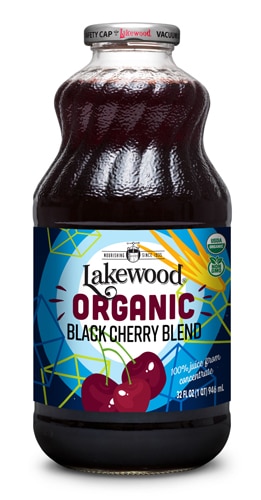 The reason for its rise in popularity may be that people think that organic products are healthier, more nutritious, safer, and taste better than their conventionally grown counterparts. Additionally, people consider organically grown food to be better for the environment.
Is this all true? We do know for sure that it is more expensive. However, according to Axios, the gap between conventionally grown and organic food is shrinking.
The reason for its rise in popularity may be that people think that organic products are healthier, more nutritious, safer, and taste better than their conventionally grown counterparts. Additionally, people consider organically grown food to be better for the environment.
Is this all true? We do know for sure that it is more expensive. However, according to Axios, the gap between conventionally grown and organic food is shrinking.
What is organic food?
Farmers must adhere to certain practices outlined by the USDA when it comes to growing organic food and raising livestock. For crops, farmers can’t use synthetic pesticides for pest control, artificial fertilizers, or sewage sludge for fertilizers. Additionally, they can’t use additives, genetic technology, or radiation. For livestock, there can be no use of antibiotics or growth hormones. In addition to prescribing what and what can’t be used, organic farming practices ensure that soil and water quality are maintained, humane practices are followed to raise livestock, and the environmental impact is minimal.What does an organic label mean?
It’s a good idea always to read the food label of a store-bought product to note the amount of fiber, protein, fat, etc. And, if you’re looking to eat strictly an organic diet, you’ll want to look for products with USDA organic certification. In general, according to the USDA website, “USDA certified organic foods are grown and processed according to federal guidelines addressing, among many factors, soil quality, animal raising practices, pest and weed control, and use of additives.” However, you may wonder what the different certification labels mean. A USDA Organic label means that the product contains at least 95% organic ingredients. A product labeled “Made with Organic Ingredients” means that at least 70% of its ingredients are organic. And when you see a product with the USDA label “100% Organic,” you know that product contains only organically produced ingredients, excluding water and salt.Does organic food have health benefits?
Observational studies indicate that people who eat organic are healthier than people who don’t. However, observational studies mean that there could be other factors than just the food that makes people healthier. For example, it’s likely that people who eat organic food also exercise, eat an overall healthy diet, and have lower rates of obesity. But, other studies did find that organic foods have higher rates of antioxidants and that organic meat, dairy, and eggs have higher levels of omega-3 fatty acids. Both antioxidants and omega-3 fatty acids are substances that can lower your risk of heart disease, certain cancers and other diseases. Organic food also has lower rates of unhealthy substances such as toxic metals, pesticides and antibiotic-resistant bacteria. Pesticide exposure is linked to ADHD, autism, memory issues, fertility issues, and cognitive decline later in life. So, while studies show a clear benefit to eating organic foods, other studies indicate that, for example, toxic metals and pesticide levels found in conventionally-grown food are still considered safe.Is all organic food more nutritious?
It’s true that organic produce has some added health benefits. But, packaged foods such as cereals, mac-n-cheese, cookies and crackers can be just as unhealthy as their non-organic versions, and sometimes more so. Organic mac-n-cheese, for example, has more calories, total fat, saturated fat and cholesterol than the non-organic meal. Organic cookies still have too much sugar, and organic chips are still high in sodium. So, don’t be fooled into thinking that just because something has an organic label that it’s healthier.Is organic food tastier?
According to a Pew Research poll, 59% of Americans think there is no difference in taste between organic and non-organic food. Although, a small minority, 51%, of those who primarily eat organic food say it tastes better. One expert from the American Council on Science and Health points out that it’s not relevant whether the produce is organic or non-organic, but when it’s harvested. Picking fruit and vegetables and eating them at the ideal time results in the tastiest produce.Bottom line:
While organic food does have fewer pesticides and chemicals, conventionally grown foods, studies show, don’t have unsafe levels of these substances. However, some experts argue that pesticides, metals and chemicals can build up in your system over time. So, if you want to stick with organic products but don’t want to spend too much, stick to purchasing organic produce that tends to have the highest levels of residual pesticides. These include:- Strawberries
- Spinach
- Grapes
- Apples
- Tomatoes
- Celery
Visit The Organic Shop at Vitacost to stock up on all your favorite organic pantry staples!
 [/vc_column_text][/vc_column][/vc_row][vc_row][vc_column][vc_text_separator title="Featured Products" border_width="2"][vc_row_inner equal_height="yes" content_placement="middle" gap="35"][vc_column_inner width="1/3"][vc_single_image image="162714" img_size="full" alignment="center" onclick="custom_link" img_link_target="_blank" css=".vc_custom_1664735211463{padding-right: 7% !important;padding-left: 7% !important;}" link="https://www.vitacost.com/organicville-pizza-sauce"][/vc_column_inner][vc_column_inner width="1/3"][vc_single_image image="162713" img_size="full" alignment="center" onclick="custom_link" img_link_target="_blank" css=".vc_custom_1664735229396{padding-right: 7% !important;padding-left: 7% !important;}" link="https://www.vitacost.com/organicville-pizza-sauce"][/vc_column_inner][vc_column_inner width="1/3"][vc_single_image image="162715" img_size="full" alignment="center" onclick="custom_link" img_link_target="_blank" css=".vc_custom_1664735116826{padding-right: 7% !important;padding-left: 7% !important;}" link="https://www.vitacost.com/simple-truth-organic-90-second-100-whole-grain-brown-rice"][/vc_column_inner][/vc_row_inner][/vc_column][/vc_row]
[/vc_column_text][/vc_column][/vc_row][vc_row][vc_column][vc_text_separator title="Featured Products" border_width="2"][vc_row_inner equal_height="yes" content_placement="middle" gap="35"][vc_column_inner width="1/3"][vc_single_image image="162714" img_size="full" alignment="center" onclick="custom_link" img_link_target="_blank" css=".vc_custom_1664735211463{padding-right: 7% !important;padding-left: 7% !important;}" link="https://www.vitacost.com/organicville-pizza-sauce"][/vc_column_inner][vc_column_inner width="1/3"][vc_single_image image="162713" img_size="full" alignment="center" onclick="custom_link" img_link_target="_blank" css=".vc_custom_1664735229396{padding-right: 7% !important;padding-left: 7% !important;}" link="https://www.vitacost.com/organicville-pizza-sauce"][/vc_column_inner][vc_column_inner width="1/3"][vc_single_image image="162715" img_size="full" alignment="center" onclick="custom_link" img_link_target="_blank" css=".vc_custom_1664735116826{padding-right: 7% !important;padding-left: 7% !important;}" link="https://www.vitacost.com/simple-truth-organic-90-second-100-whole-grain-brown-rice"][/vc_column_inner][/vc_row_inner][/vc_column][/vc_row]



